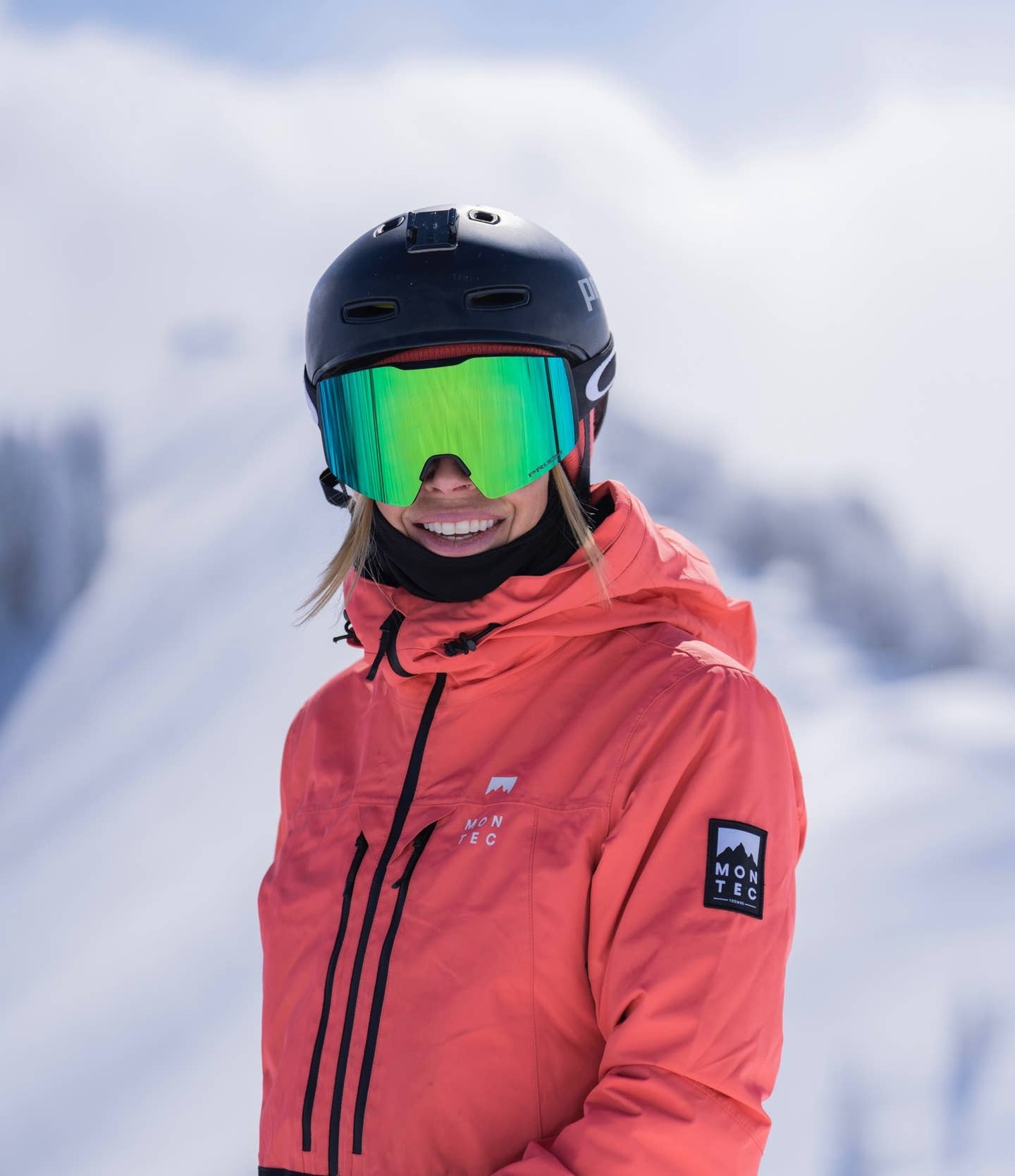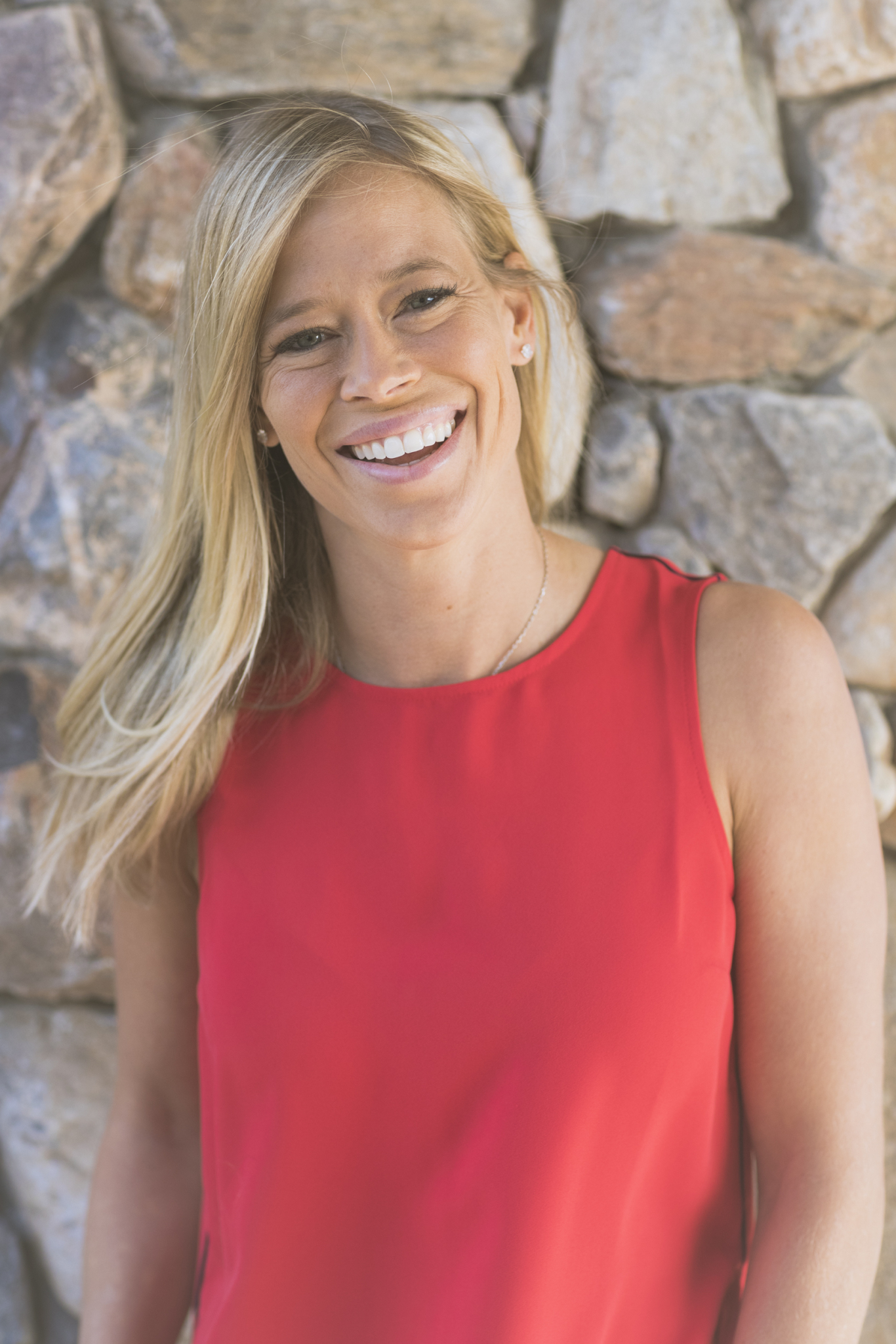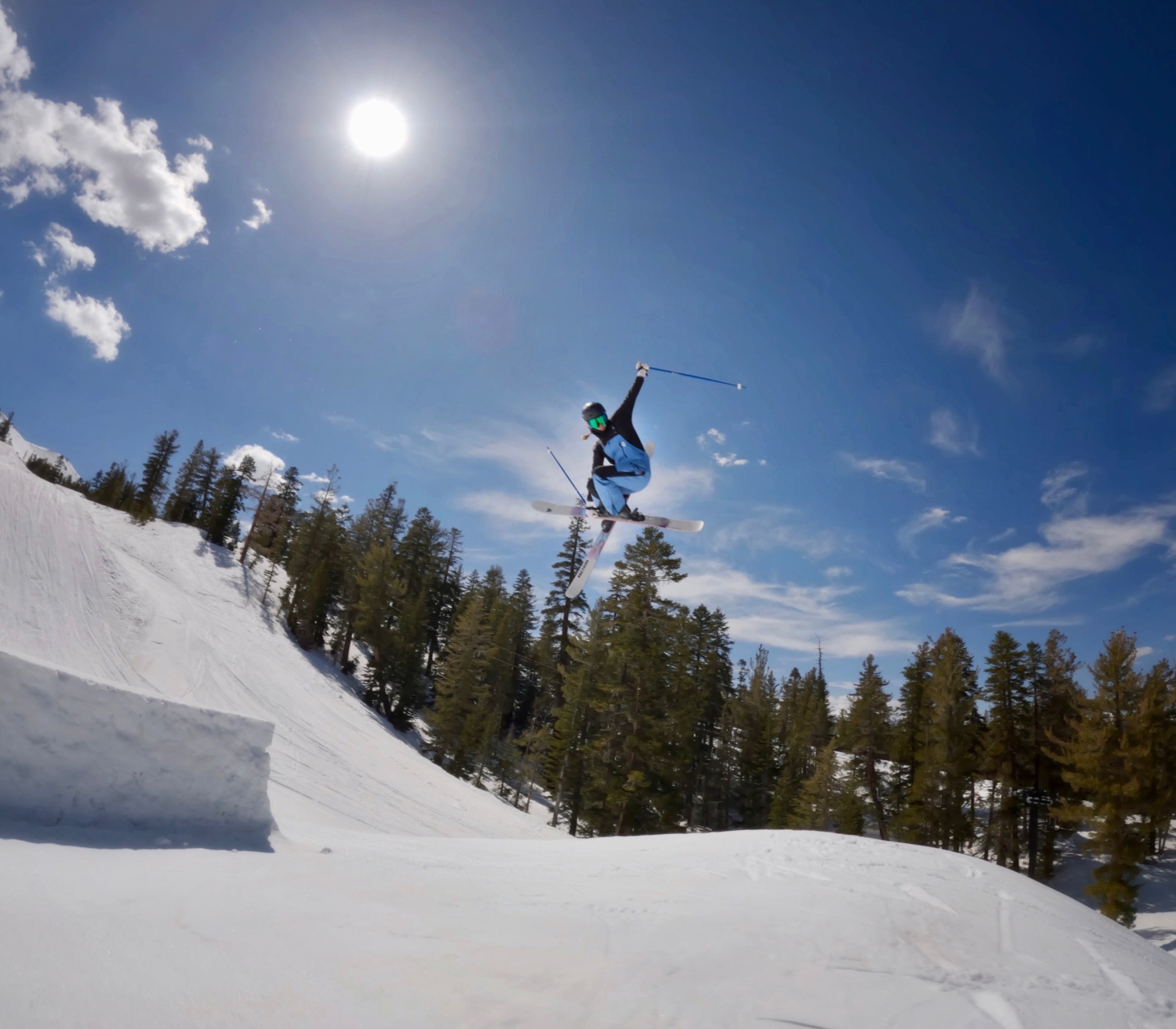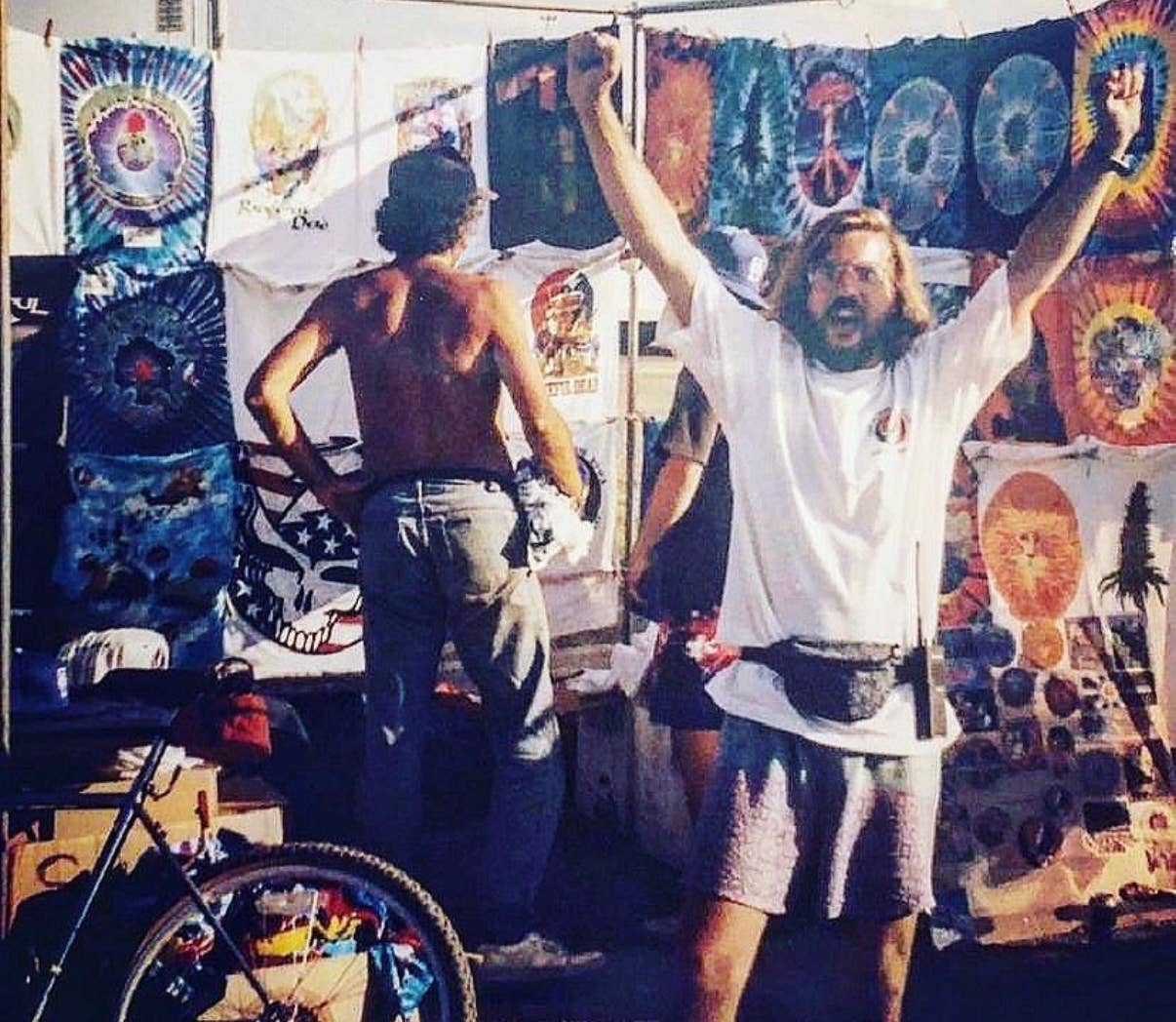

Kristi Leskinen on X Games Legacy, Athlete Advocacy, and the New Alumni Program
Popular Stories
Kristi Leskinen has been a trailblazer in freeskiing and a relentless advocate for equality in action sports for over two decades. Now, as the newly appointed Alumni Director at X Games, she’s taking on a new mission: strengthening the legacy of past athletes and providing resources to help them transition beyond competition. In this interview, she discusses her journey from pushing for equal prize money to spearheading initiatives like mentorship programs, financial literacy support, and a potential X Games Hall of Fame. Leskinen’s vision is to ensure that being an X Games athlete carries the same lifelong prestige as being an Olympian.

The former pro skier turned Alumni Director shares her vision for connecting past X Games athletes and strengthening their legacy.
A Legacy of Progress and Passion in Action Sports
Kristi Leskinen has long been a trailblazer in the world of freeskiing. As one of the sport’s early pioneers, she helped shape women’s progression in competition, pushing boundaries and inspiring the next generation of athletes. Now, she’s stepping into a new role as the Alumni Director for X Games, a position designed to bridge the past and future of the legendary action sports event. In this role, Leskinen aims to strengthen the bond between former competitors and the current generation while ensuring that X Games remains a pillar of progression in action sports.
We caught up with Kristi to discuss her vision for the alumni program, the evolving landscape of competitive freeskiing, and how X Games can continue to elevate athletes after their competitive careers are over.

X Games is building an alumni network to reconnect with past athletes and share new opportunities. If you're an X Games alum, submit your info here to stay in the loop.
__
Kristi Leskinen: I started going to X Games around the year 2000. Sarah Burke and I started out as forerunners of the men's ski events. Then there was a contest, but no prize money. And then prize money came, but it wasn’t the same as the guys’, and there was no TV coverage. Most of my career at X Games was spent trying to make things better, and we did all we could there — women are equal now. They get the same prize money as the men, great coverage, and X Games has been on that train for a while. This new role just feels like an extension of those efforts. Over the last several years, I’ve noticed there are gaps, especially for retiring athletes. There are ways things can be better, and I’m just excited that I get to start fighting for those.
Marlowe Kushner: So, would you say creating opportunities for retired athletes is a big motivation as you start exploring the new job?
KL: Yeah, it’s not just about opportunities, because I think there are many of those, but it’s also about building and honoring the legacy. It’s about giving back to the athletes who made X Games what it is today. And I think we’re finally at a position where we can do that, which is really exciting.
MK: Have you thought of some things that might be on your short list for making changes or starting initiatives to do that?
KL: Yeah, I think there are kind of three silos: there are the Pay It Forward initiatives, some give-back initiatives, and then there are a lot of things that are win-win, no-brainers — things that are great for X Games, great for the retired athletes. Things that make me ask why we aren’t already doing these?
MK: Could you tell us some of those ideas?
KL: I would be thrilled to launch an X Games Hall of Fame. We’re 30 years old this year. We have absolute legends across all X Games sports, and I think honoring them is an obvious next step. That is a no-brainer in my opinion.
And then obviously the Pay It Forward initiative is about mentoring the next athletes who are coming along. I think it would be great for rookies to get paired with a mentor or someone who can help answer questions, ease nerves, and explain what they’re about to go through. There’s so much to help guide you in preparing for a future in X Games.
In the give-back initiatives, I think an alumni newsletter would be a straightforward and easy way to let athletes know that we want them at the live events. We want them to come back to X Games. We want them here. They’re welcome here, and I want to honor them.
There are so many alumni who have branched out into all kinds of different fields. We have heart surgeons, people now working in psychology, financial services, and more. From my experience with some of those athletes, I know they’d be willing and ready to give back. They’ve seen some of the struggles, so they’d know the value of giving back to that community. It’s about building that and bringing it all full circle for our athletes.
MK: It’s so interesting that there are alumni in all of those professional spheres — I never would have assumed that there are X-Games-competitors-turned-heart-surgeons out there. That’s honestly very cool.
MK: You mentioned a mentor program, and just looking back through your career, I’m wondering, were there mentors or other women or people helping you along the way? What was it like navigating the action sports landscape at that point in time?
KL: I grew up a bit of a tomboy, and I think you had to be like that to get into the kind of skiing I did when I did it. Pretty quickly, you just saw what felt like injustices, and at the time, it was really frustrating. It took away from my athletic performance because it just felt like we had to deal with all this external garbage — like all the things we didn’t have. So, there was so much fight just to get your foot in the door in the ski industry in general. Once you got your foot in the door, you didn’t always have the energy to take that next step. It was exhausting.
Looking back now, it’s incredible. People ask me what the best thing about my career was, and it’s not the contest wins, in fact I usually cringe a little bit looking back at my X Games career because I feel like I usually underperformed, but really it’s seeing some of the highest-paid female athletes in the world right now competing in sports and events that didn’t exist when I was younger, and might not exist the way they do now if not for the struggles I went through.
__
As action sports continue to evolve, Leskinen sees an opportunity for X Games to not only honor its past but also leverage its alumni to help shape the future. She believes that recognizing former athletes and their contributions makes the event more meaningful for those competing today. By fostering a sense of history and pride, X Games can position itself as more than just a contest—it can be a career-defining moment that athletes aspire to.
She also touches on how film segments and creative expression could play a bigger role in the competition. With skiing and snowboarding becoming increasingly diverse in format—ranging from major competitions to groundbreaking film projects—Leskinen sees room for X Games to expand its influence beyond the traditional contest structure.
Most of my career at X Games was spent trying to make things better, and we did all we could there — women are equal now. They get the same prize money as the men, great coverage, and X Games has been on that train for a while.
__

MK: What do you see as the next steps moving forward in this push for equal opportunities? What are the challenges that come to mind for you that you still want to tackle?
KL: I could answer that question in so many different ways. You know, if we take this back to the X Games, which is the single most elite contest invite you can receive as a skier or snowboarder, and if you’re a skateboarder or BMX rider, it’s the same — this is a more elite invite than even the Olympics. But if you go to the Olympics, for the rest of your life, you can say you’re an Olympian. And I want the X Games — if I’m dreaming big — to be that way. I want people to feel that same pride and knowledge when it comes to getting that X Games invite. I want it to mean something to you for the rest of your life.
MK: Does that mean growing X Games as a brand? How do we get there?
KL: I mean, X Games is huge at this point. It's been around since the mid-'90s, and it is international. But is it about growing the brand and popularity, and then, in turn, putting that with the pride associated with receiving an invite. I think part of it is recognizing the legacy that's already here. We want our competitors to be proud enough of that invite to say, "Yeah, I'm an X Games athlete," and in turn giving them a platform to stand behind.
MK: Just looking at the freeskiing world, or comp skiing, and how it’s changing, we’re seeing more diverse opportunities for athletes to express their style. Do you think other avenues, like filmmaking, could factor in with X Games?
KL: I think there are a myriad of ways in which we can grow and move with the sport and the culture, which is super important to X Games. I don’t have all the answers with all these new changes, but I know that X Games is really excited to continue growing the legacy of the sport. They’re committed to making change happen. I think some things will be tried and won’t work, and some things will. It’s about staying on edge and at the forefront of where these sports are heading.
MK: You mentioned in a press release when you got this job that you wanted to leave the place better than when you found it. How have you started going about doing that, and how are you going to continue?
Join Our Newsletter
...if you go to the Olympics, you can say you’re an Olympian, and I want the X Games to be that way. I want people to feel that same pride and knowledge when it comes to getting that X Games.
__

A pusher of progression, Kristi has always been in pursuit of what lies ahead.
X Games is building an alumni network to reconnect with past athletes and share new opportunities. If you're an X Games alum, submit your info here to stay in the loop.
One of the biggest challenges for action sports athletes is the abrupt transition that comes when their competitive careers wind down. Unlike traditional sports, where college scholarships or structured career pathways exist, many action sports athletes are left searching for direction once their time in the spotlight fades.
Leskinen is deeply passionate about addressing this issue. In her new role, she hopes to introduce programs that help X Games athletes prepare for life after competition—whether through financial literacy education, networking opportunities, or pathways into coaching and mentorship roles. She highlights how many of her peers, despite reaching the pinnacle of their sport, struggled with the sudden shift to a new chapter. By creating a strong alumni network and offering structured support, she hopes to ease that transition for future generations.
__
KL: A lot of the athletes who compete in X Games are young, and they’re not getting a college education while competing. You can't really do that while you're traveling the world. We've all seen friends who were enormously popular, really famous within the sport, really successful, and then, one day, it just stops. It can feel like a tough transition. If you’ve been flying through the air at X Games, winning gold medals, sometimes waking up to a "normal" job is hard, or figuring out the path forward—what do you do? Nothing is going to give you that level of adrenaline, excitement, or attention. For a lot of people, it’s a rude awakening. So I think it’s about finding ways to build bridges that keep those people involved in the sport. I think that’s hugely valuable.
I think through continued education programs, financial literacy programs, and transition coaching, we can put the infrastructure in place to help athletes be successful after the games, which is really important to me. It’s about creating a plan.

She's out there! Despite having her competitive career in the rear-view, Kristi is still a huge skier and is currently scoring in the southern Sierras.
__
People ask me what the best thing about my career was, and it’s not the contest wins... but really it’s seeing some of the highest-paid female athletes in the world right now competing in sports and events that didn’t exist when I was younger.
Leskinen’s new role is just getting started, but the enthusiasm behind it is already palpable. As X Games continues to evolve, her goal is to create lasting connections between past and present athletes, ensuring that the event’s legacy remains a source of inspiration for years to come.
For now, she’s calling on X Games alumni to reconnect—urging former competitors to reach out and be part of this new initiative. With a growing alumni network and fresh ideas on the horizon, her leadership could mark the beginning of an exciting new era for action sports.
__
KL: I would just like to touch on the fact that the first thing we need to do in building this program is get current contact information from X Games alumni. So, if there are any X Games alumni out there reading this, we’ll have a page on the X Games website where you can submit your information. That way, we can keep you up to date as this program is developed and let you know about the opportunities we’re able to pull together. We have a lot of ideas, and we just need to prioritize them and see what happens next.
MK:
Yeah, and if athletes are looking to get in touch, what’s the best way for them to reach you and X Games?
KL: I really hope we get to follow up on a lot of my ideas because, looking back, I know so many people for whom this could have made a huge difference in their lives.
__
As Kristi Leskinen embarks on this next chapter with X Games, her commitment to honoring the past while shaping the future of the sport is poised to make a lasting impact. Her experience as an athlete and her deep understanding of the challenges athletes face both during and after their competitive careers fuel her drive to create a legacy that extends beyond the event itself. By fostering a strong alumni network, advocating for mentorship, and offering support to X Games athletes, Kristi is sure to leave a profound mark on X Games and the action sports world as a whole.
As we watch the evolution of her vision unfold, we’re reminded that the future of the sport lies not only in the athletes who compete but also in the communities they build and the legacies they leave behind. We’re excited to follow Kristi’s journey and see how she continues to inspire the next generation of athletes to push boundaries, make their mark, and create a legacy of their own.
X Games is building an alumni network to reconnect with past athletes and share new opportunities. If you're an X Games alum, submit your info here to stay in the loop.





